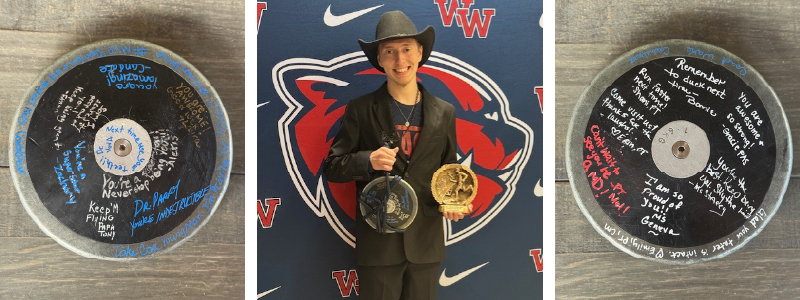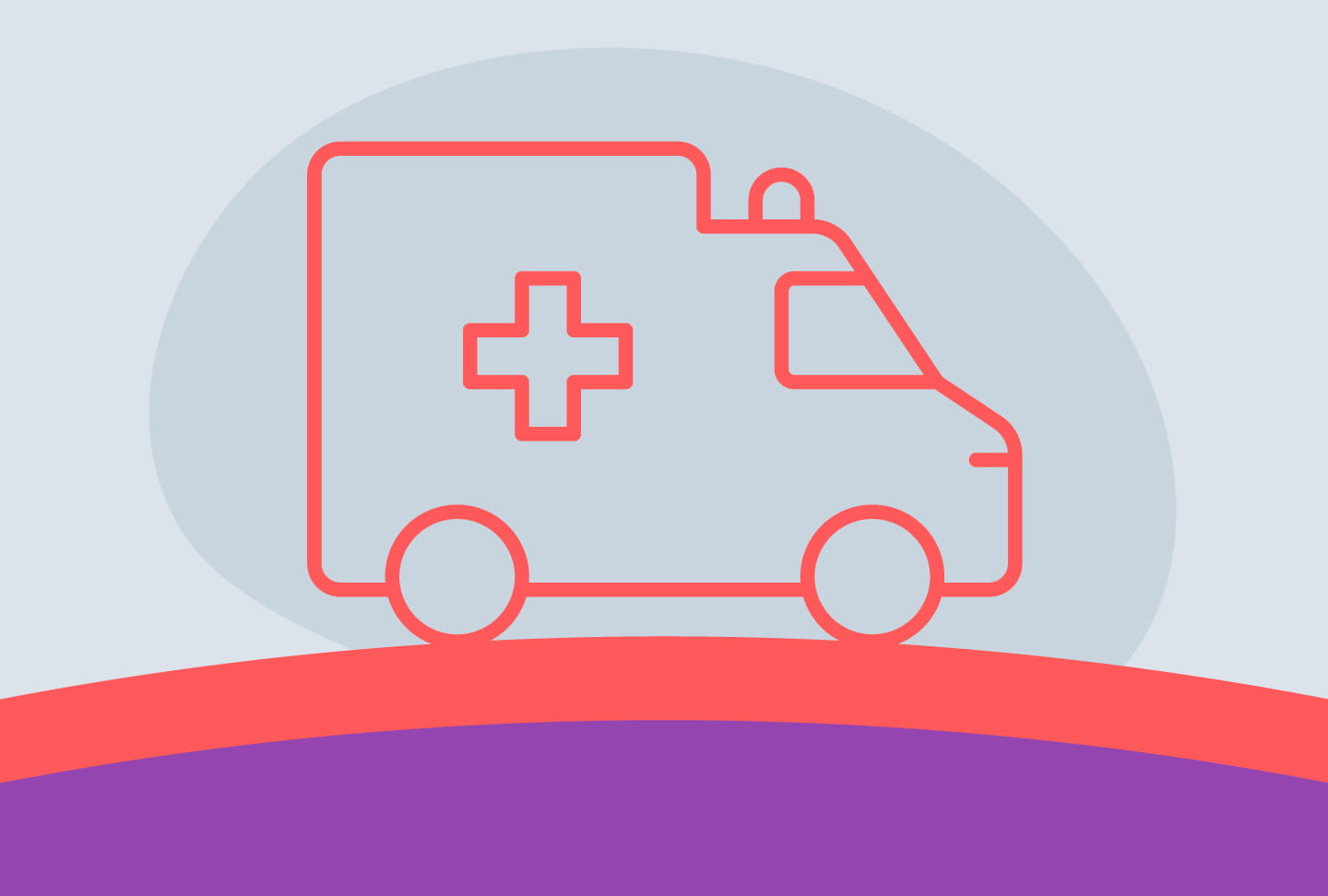Xander Garanzuay, a long-distance runner, never imagined his high school track meet would end with him being airlifted to the hospital. But when a discus struck him in the head, he suffered a depressed skull fracture and needed emergency surgery.
Thanks to the quick action and collaboration of
Wellstar Kennestone Regional Medical Center's
trauma and neurosurgery teams, Xander is now back to running. His story highlights the resilience of the human body, the strength of family and the impact of expert care.
A sudden accident
After finishing the 2-mile race at a track meet in Cartersville, Xander stayed to support his Woodstock High School teammates. When he was ready to go home, he texted his parents.
A few moments later, everything changed. While tossing a ball with his friend, Xander ran to retrieve it—just as a discus struck him in the head.
The discus hit Xander on the left side of his head with such force that he fell unconscious. Xander began seizing—his condition was critical. While his friend raced to notify their coaches, Kelly, Xander’s mom, had arrived to pick him up.
“I’m sitting out front texting Xander, ‘I’m here,’ when emergency vehicles start pulling up,” Kelly said. “Then my husband called—‘Xander’s been hit.’”
Kelly stayed with Xander as EMS evaluated him. “He was awake but not coherent,” she noted. They determined he would need to be airlifted to Wellstar Kennestone, a
Level I Trauma Center.
Life-saving surgery
Xander was swiftly transported to Wellstar Kennestone, where the trauma team was ready to act. Upon arrival, Wellstar Neurosurgeon
Dr. Phillip Parry
assessed the severity of Xander’s injury: a depressed skull fracture causing seizures.
“The discus is a large weight—picture a five-pound Frisbee—that is flung through the air,” said Dr. Parry. “Thankfully, Xander’s skull protected his brain, but he essentially sustained a ballistic injury to the skull.”
The impact to the left side of Xander’s skull left him with a fixed-focus neurologic deficit. His right arm—his dominant arm—had no muscle strength, and his right leg was weak.
Dr. Parry performed an emergency craniotomy to remove the bone pressing on Xander’s brain. The surgery was successful, but the road ahead was uncertain.
“The biggest challenge wasn’t the surgery itself—this is something we do every day,” he said. “It was telling a 16-year-old and his mother that we didn’t know whether he would regain function in his dominant arm.”
Kelly had to trust in the care Xander was receiving. “You don’t know what you’re going to do in that situation. Nothing prepares you,” she said. “I had to have faith that he was in the right hands—and he truly was.”
Steady progress
The day after Xander’s surgery, Wellstar Kennestone’s physical and occupational therapy teams began working at his bedside to restore movement in his non-functioning arm and leg.
“You want to do everything you can to optimize the body’s ability to heal,” said Dr. Parry. “It was important that we provided that environment for him.”
Xander’s positive attitude and determination played a crucial role in regaining function. His dad, Xavier, was amazed by his son’s resilience.
“He was so proactive and driven to get better,” Xavier said. “It was inspiring to watch.”
Still, sometimes the reality of what happened sank in. “He woke up one night and said, ‘I could have died,’” his mom remembered. “I told him, ‘Yes, but you didn’t.’ He said, ‘God must have something really special planned for me.’”
Xander applied the same fortitude from running to each step of his healing. “Sometimes you can be your own worst enemy, but you can also be your biggest supporter,” he said. “If you don’t believe in yourself, how can anyone else believe in you?”
Care that made a difference
Xander spent six days at Wellstar Kennestone before being transferred to inpatient rehabilitation. The support from Wellstar’s care team made a lasting impact.
They were there for whatever we needed—compassionate and always listening to Xander’s needs,” Kelly said.
One night during his stay, Xander woke needing help to get to the restroom. When a nurse arrived, he suddenly began seizing. “I’ve never seen eight nurses in a room so quickly,” his mom recalled. “Everyone knew exactly what to do.”
One poignant moment came when Xander’s family had the discus—now a symbol of victory over his injury—signed by his care team.
“It’s rewarding as a physician to know that I played a small part in restoring his ability to use his arm again,” Dr. Parry reflected. “As a parent, I know the anxiety that comes with the uncertainty of neurologic recovery. To see Xander move his arms and legs again, as if nothing happened, is a relief that’s indescribable.”
The power of community
Xander’s recovery was supported not only by his family and Wellstar care team, but also by his school and community. After the accident, his track team dedicated the next meet to him, with “Run for Xander” wristbands and signs. A teammate also started a GoFundMe campaign, which raised nearly $13,000 to help with the family’s medical expenses.
“People from all over came together for Xander,” Xavier said. “Posts on his team’s Facebook page were shared with running clubs from Canada to Miami. We were blown away.”
Xander was especially touched by the support. “This whole experience showed me how much my family loves me,” he said. “Seeing my friends, teachers and even family from Texas come to help—it meant so much.”
A bright future
After two and a half weeks of inpatient rehabilitation, Xander transitioned to outpatient rehab and continued regular follow-ups with Dr. Parry at the
Wellstar Neurosurgery clinic.
“At each phase, he received the best possible care,” explained Dr. Parry. “That’s why he had such a great outcome.”
Today, Xander is almost fully recovered and back doing what he loves most—running. “Physically and mentally, he’s doing phenomenal,” Kelly said. “He has his own training program. I am so proud of him.”
Xander’s progress wouldn’t have been possible without the trauma care network that supported him every step of the way. “The benefit of the trauma network can’t be overstated,” Dr. Parry said. “It ensures people get the best possible outcome even on their worst day.”
With expert care and determination, Xander is ready for whatever comes next.
Learn more about
Trauma Services
and
Neuro Care
at Wellstar.







